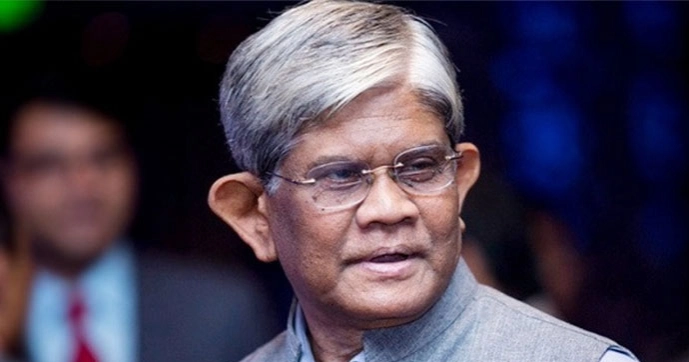Finance and Commerce Adviser Dr. Salehuddin Ahmed on Sunday clarified that the government’s decision to export hilsa fish to India was made following directives from higher authorities, despite earlier statements suggesting otherwise.
“One responsible person said hilsa would not be exported, but a much higher authority directed us to proceed,” Dr. Salehuddin told reporters at his office in the Secretariat, addressing the apparent reversal of the initial stance.
Earlier, Fisheries and Livestock Adviser Farida Akhtar had firmly stated that Bangladesh would not export hilsa to India this year in an effort to boost local supply of the much sought after fish. However, the interim government on Saturday approved the export.
Explaining the change, Farida Akhtar said the Ministry of Commerce approved the export following a “special request” from India ahead of the Durga Puja festival.
“The Ministry of Commerce has made the decision based on a specific request for Durga Puja. While we have acted on this request, I cannot impose any decision on them,” she clarified, noting that her ministry has no direct role in the matter.
Farida further reiterated the Fisheries Ministry’s commitment to ensuring sufficient hilsa for local consumers but added that she has no authority to halt exports. “I can make a request, but I cannot enforce a ban,” she said.
Hilsa Export Volume is Minimal, Says Finance & Commer Adviser
Dr. Salehuddin downplayed concerns over the export, emphasizing that the approved quantity is insignificant compared to the country’s overall production.
“Bangladesh produces 530,000 metric tonnes of hilsa, and only 3,000 metric tonnes are being exported,” he said. “That’s less than one percent of our total production. Why shouldn’t we export, especially when they
have an emotional connection to it?”Addressing criticism from various quarters, the adviser acknowledged that some might feel emotionally about the issue but maintained that the decision is in Bangladesh’s economic interest. “We will earn revenue through these exports,” he added.
Dr. Salehuddin also noted that hilsa often reaches India illegally through smuggling, and formalizing the process through export channels ensures a legal and profitable transaction.
When asked about Fisheries Adviser Farida Akhtar’s comments that her ministry was not consulted on the export decision, Dr. Salehuddin responded, “It’s not necessary to discuss every decision with every ministry. I can assure you, this decision was made after deep consideration.”
He dismissed concerns about potential price hikes for hilsa in Bangladesh due to the export, saying, “There’s no reason for the price to increase because of such a small quantity. In the long run, this decision will bring positive results.”
Economic Cooperation Between Bangladesh and India
Highlighting the importance of maintaining good relations with India, the finance and commerce adviser pointed out that Bangladesh imports onions from its neighbor, and India recently reduced duties on onion exports.
In the fiscal year 2023-24, Bangladesh exported 664.86 tonnes of hilsa to India, generating $7.71 million, according to the Department of Fisheries. The previous year saw exports of 1,376.42 tonnes of hilsa, worth $13.68 million.
Despite increased production—reaching 571,342 tonnes in the fiscal year 2022-23, up from 566,593 tonnes the previous year—the demand for hilsa remains high in Bangladesh, keeping prices elevated in the local market.













-20260304091720.webp)




-20260303080739.webp)









-20260225072312.webp)





-20260228064648.jpg)
